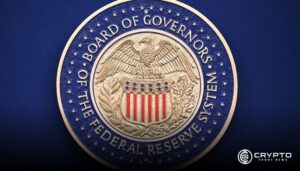- President Trump granted pardons to BitMEX co-founders, ending legal proceedings related to financial regulation violations and compliance failures.
- The executives had received probation sentences and were fined millions after pleading guilty to violating the Bank Secrecy Act.
- BitMEX received a $100 million penalty for their inadequate implementation of both anti-money laundering and customer identification programs targeting U.S. consumers.
President Trump pardoned BitMEX co-founders Arthur Hayes, Benjamin Delo, and Samuel Reed after they pleaded guilty to federal charges. The pardons put an end to years-long legal action against money laundering and Bank Secrecy Act violations. The action comes after individual probation sentences and civil penalties for each executive.
Legal Proceedings and Sentencing
BitMEX executives pleaded guilty to violating the Bank Secrecy Act. The charges were related to the inability to implement proper anti-money laundering and know-your-customer programs. The prosecutors explained that the exchange allowed U.S. customers to trade with minimal identification. The court proceedings were marked by forceful enforcement of U.S. financial regulations.
Arthur Hayes received a sentence of six months’ home confinement, to be followed by two years of probation. Benjamin Delo received a sentence of 30 months of probation. Samuel Reed received a sentence of 18 months of probation. Gregory Dwyer, the ex-business development chief, was also sentenced to 12 months of probation and a $150,000 fine. The civil penalties relating to the case were $30 million, and the exchange was slapped with an additional $100 million fine.
The legal repercussions were clearly set out by the court. The punishment for each executive reflected their respective roles and duties at BitMEX. The court procedure followed normal practices for the enforcement of financial laws. The U.S. authorities maintained standard practices throughout the trial.
Statements and Public Reactions
One tweet from Arthur Hayes said, “Thank you POTUS.” The tweet provided a brief public reaction after the pardon was made public. Hayes’ tweet was posted on X shortly after the decision was publicly announced. His tweet was a direct response to the presidential action.
Benjamin Delo also spoke after the pardon. He pointed out that the U.S. Department of Justice had prosecuted BitMEX and its co-founders. His statement emphasized that the pardon cleared his record. Delo pointed out that the action removed the burden of an undeserved conviction. The public comments gave a clear account of their reactions.
The announcements and tweets were published in real time. They served to inform the community about the outcome. The messages stated the news in clear and simple language. Public response remained within the realm of the legal verdict of the case.
Other Legal Developments in Crypto
Other court cases have affected prominent figures in the crypto and tech communities. Nikola founder and ex-CEO Trevor Milton was pardoned for a securities fraud conviction. Milton was jailed but was free on appeal during the case. His case was mentioned alongside the BitMEX verdicts.
The recent pardons form part of the broader review of legal actions in digital asset trading. U.S. authorities have enforced regulations in various instances of financial crimes. The judgments point to attempts at applying financial laws uniformly across sectors. Crypto and tech companies still follow established legal processes.
The pardons mark the end of an episode of the legal action affecting BitMEX. They conclude a series of regulatory measures by the U.S. government. The cases will remain on records as examples of judicial enforcement of financial regulations. The decisions reflect the outcome of an exhaustive and controlled legal process.





